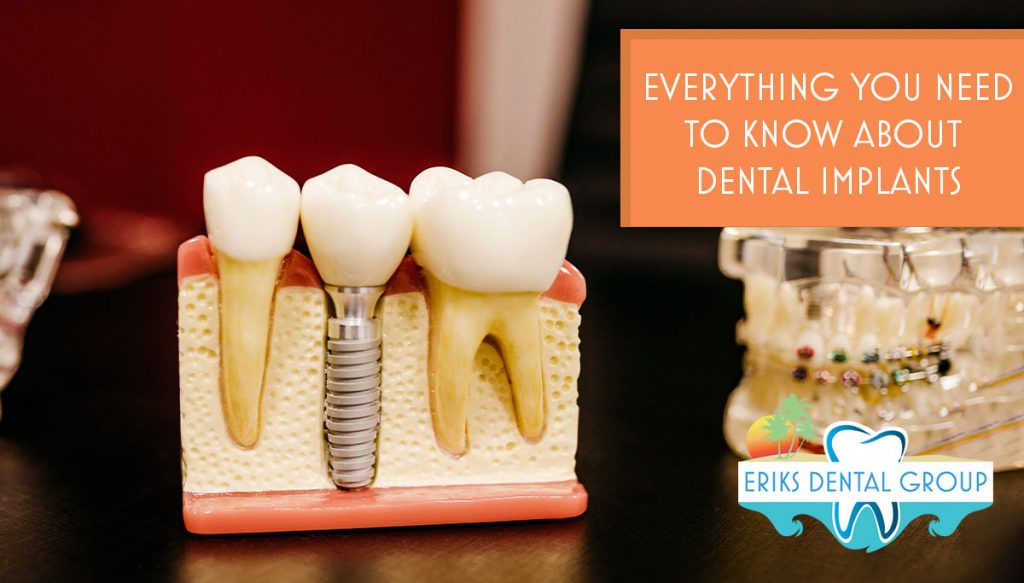Dental implants are an option for replacing one or more missing teeth and can be used as an alternative to removable dentures. A dental implant replaces your natural tooth root with a titanium screw that is inserted into your jaw and holds an artificial tooth or bridge in place.
Are You A Good Candidate For Dental Implants?
Dental implants are not for everyone, to be eligible to receive dental implants, you must be in good physical and dental health. You may not be a candidate for this type of tooth replacement if you have lost a significant amount of bone mass in your jaw, because you need a certain amount of jawbone density to support the implants. Having periodontal disease also reduces your likelihood of getting dental implants because your gums support the prosthetics.
Different Types Of Dental Implants
There are 2 types of dental implants: Endosteal Implants and Subperiosteal Implants.
Endosteal implants involve having screws, cylinders, or blades surgically inserted into your jawbone. Each of these implants can hold one or several prosthetic teeth in place. This type of dental implant may be right for you if you currently use bridges or removable dentures and want to switch to dental implants.
Subperiosteal implants are put on the surface of your jawbone. This type of implant involves metal posts that come through your gums to hold the implant. Subperiosteal implants may be a good option if you are not able to use dentures and don’t have enough jawbone height for endosteal implants.
Types Of Dental Implant Procedures Available
The type of dental implant procedure you will need depends on how healthy your gums are, how much jawbone mass you have, how many teeth need to be replaced, and the type of implant that will be used.
If you are only missing one tooth, your periodontist can put in a single implant. If there are multiple teeth that need to be replaced, you can have a set of several implants put in. Dental implants can also be used to replace all your teeth.
Inserting dental implants in either side of the upper back jaw is significantly more difficult than placing implants in other parts of the mouth. This is because there is not enough good jawbone structure in this part of your mouth, and it is close to your sinuses. Sinus augmentation can be used to raise the sinus floor and develop bone to be able to successfully place dental implants.
If you have any deformities in your upper or lower jaw, you may not have enough bone to have dental implants put in. Ridge modification can fix this issue. This involves lifting the gum away from the ridge to allow access to the empty space where the bone mass is missing. Your periodontist will fill this opening with a bone substitute or real bone from a donor to restore the health of the ridge.
What Follow-Up Care Is Needed?
Dental implants are the most realistic replacement options for replacing missing teeth because they look and function like your natural teeth. You should care for your dental implants in the same ways you cared for your natural teeth – by brushing, flossing, and getting professional cleanings twice a year. Taking good care of your dental implants will prevent gum inflammation and bone loss.
Dental Implants And More In South Florida
Eriks Dental Group provides dental implant surgery, family dentistry, teeth whitening, and many more dental services in Boynton Beach, Florida. Our team works hard to deliver great service and top-notch results. Call us today at 561-733-4004 to schedule an appointment.

